Key Themes:
- Literature and Criticism:
- Fuentes explores the works of various literary giants, offering critiques and analyses that reveal his profound understanding of their contributions to literature. His essays cover a wide range of authors, from William Faulkner to Gabriel García Márquez, reflecting on their styles, themes, and impacts.
- He delves into the nature of fiction, discussing how stories shape and reflect human experience. Fuentes examines the narrative techniques that define great literature and the ways in which stories bridge cultural and historical divides.
- Mexican and Latin American Identity:
- A recurring theme in the collection is the exploration of Mexican and broader Latin American identity. Fuentes discusses the historical, cultural, and social forces that have shaped Latin American societies.
- He addresses the complexities of post-colonial identity and the unique cultural synthesis that characterizes Latin America, considering how history, politics, and culture intersect in the region.
- Politics and Society:
- Fuentes’ essays often touch on political themes, reflecting his active engagement with contemporary social and political issues. He examines the role of intellectuals in society and the responsibilities they bear in addressing injustice and inequality.
- His political essays offer critiques of both Latin American and global politics, addressing topics such as democracy, revolution, and human rights.
- Cultural Synthesis:
- Fuentes frequently discusses the concept of cultural synthesis, emphasizing the blending and clashing of different cultural traditions. He celebrates the rich tapestry of influences that constitute modern identities, particularly in the context of Latin America.
- His essays explore how cultural exchange and hybridity shape artistic expression and social realities.
- Personal Reflections:
- Interspersed with his more analytical essays, Fuentes includes personal reflections that provide insights into his own life, beliefs, and creative process. These autobiographical pieces add a personal dimension to the collection, allowing readers to connect with Fuentes on a more intimate level.
- His reflections on his own writing, his influences, and his experiences as a Mexican intellectual enrich the broader themes of the collection.
Style and Structure:
- Fuentes’ writing is characterized by its eloquence, clarity, and depth. His prose is both accessible and intellectually rigorous, making complex ideas engaging and comprehensible.
- The essays are organized thematically, allowing readers to explore different facets of Fuentes’ thought and interests. This structure facilitates a comprehensive understanding of his intellectual and cultural perspectives.
Conclusion: “Myself with Others: Selected Essays” by Carlos Fuentes is a compelling collection that offers a window into the mind of one of Latin America’s most influential writers. Through his essays, Fuentes engages with a wide array of topics, from literary criticism and cultural identity to politics and personal reflections. His erudition, passion, and insightful commentary make this anthology a valuable resource for readers interested in literature, Latin American culture, and intellectual discourse. Fuentes’ essays not only reflect his own intellectual journey but also invite readers to contemplate the broader questions of identity, culture, and the human condition.
این فرم از اظهار نظر در بسیاری مواقع از پرسش و پاسخ بیرون رفته و به نوشتن نقد و جستار رسیده که بخش بزرگی از نوشتههای بزرگ تاریخ ادبیات را تشکیل میدهند. مقالهی لویی آراگون در ستایش فیلم «پیرو خله»ی ژان لوک گدار، کتاب «عیش مدام» ماریو بارگاس یوسا دربارهی رمان «مادام بوواری» گوستاو فلوبر، کتاب «انسان در شعر معاصر» محمد مختاری در نقد و تحلیل نیما، اخوان، فروغ و شاملو و بسیاری متنهای دیگر که شاعران، نویسندگان و فیلمسازان مختلف دربارهی آثار دیگر شاعران، نویسندگان و فیلمسازان نوشتهاند، همگی بخش بزرگی از دانش ما دربارهی هنر و ادبیات را تشکیل دادهاند. کتاب «خودم با دیگران» کتابیست که به ما این امکان را میدهد تا نویسندگان بزرگی که میشناسیم را از چشم نویسندهی بزرگ دیگری بخوانیم و ببینیم؛ از چشم فوئنتس! کارلوس فوئنتس که نه فقط یک رماننویس بزرگ بلکه منتقد، مقالهنویس و جستارنویس سترگی هم بود، در این کتاب از دیدرو تا مارکز و بونوئل و … را زیر نظر میگیرد و متنهایی منتقدانه و تحلیلی مینویسد که درعینحال به شدت از تجربهی زیستهی خودش در نوشتن آنها مدد گرفته است. خودم با دیگران دریچهای نو به روی ادبیات است هم در معنایی که میشناسیم و هم در معنایی که تاکنون برایمان ناشناخته بوده، آن هم از چشم جناب فوئنتس.

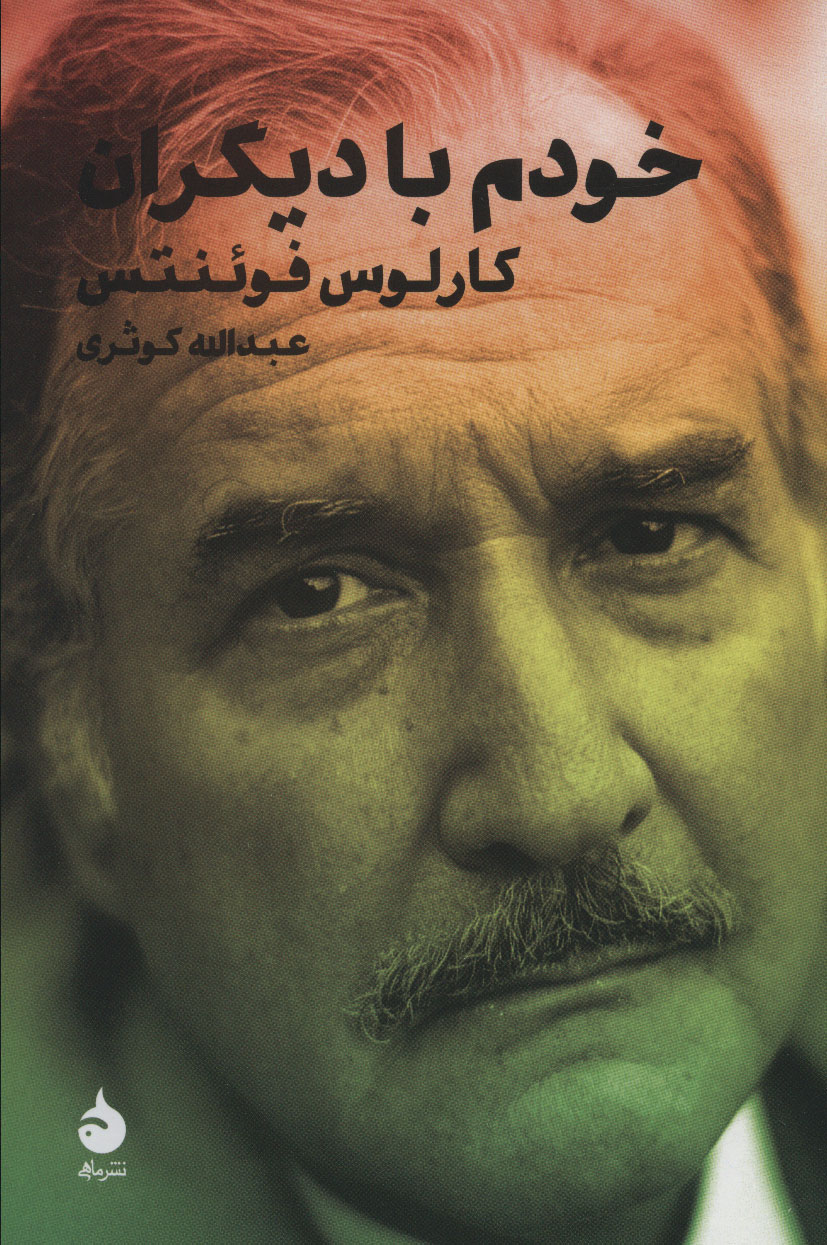
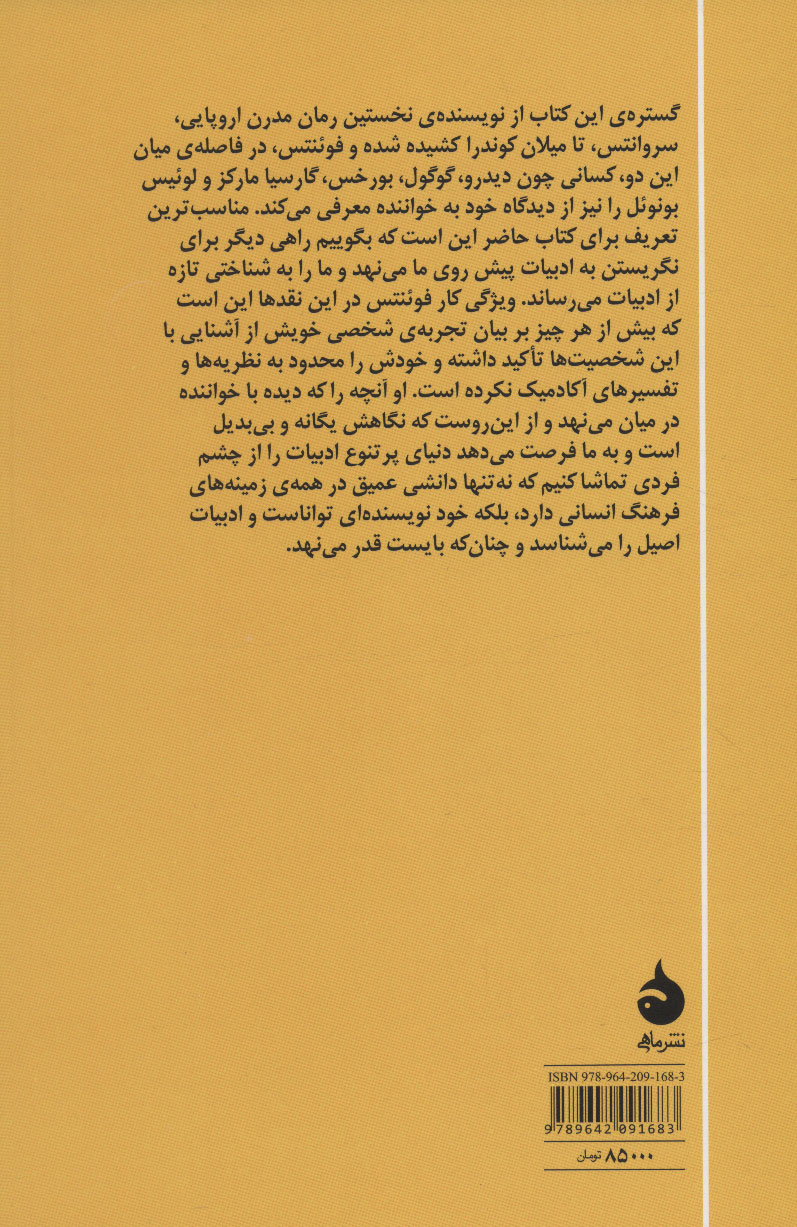
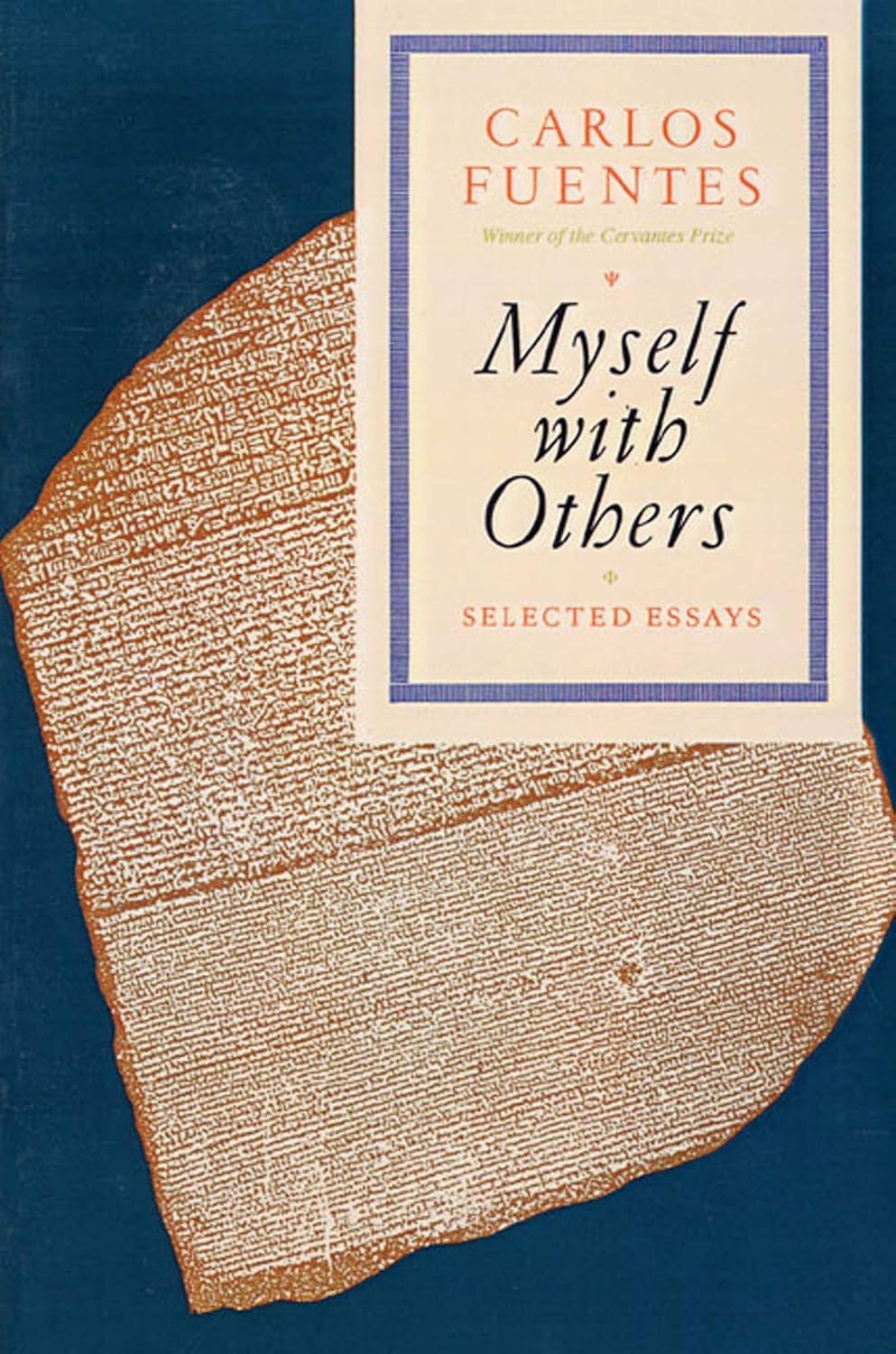
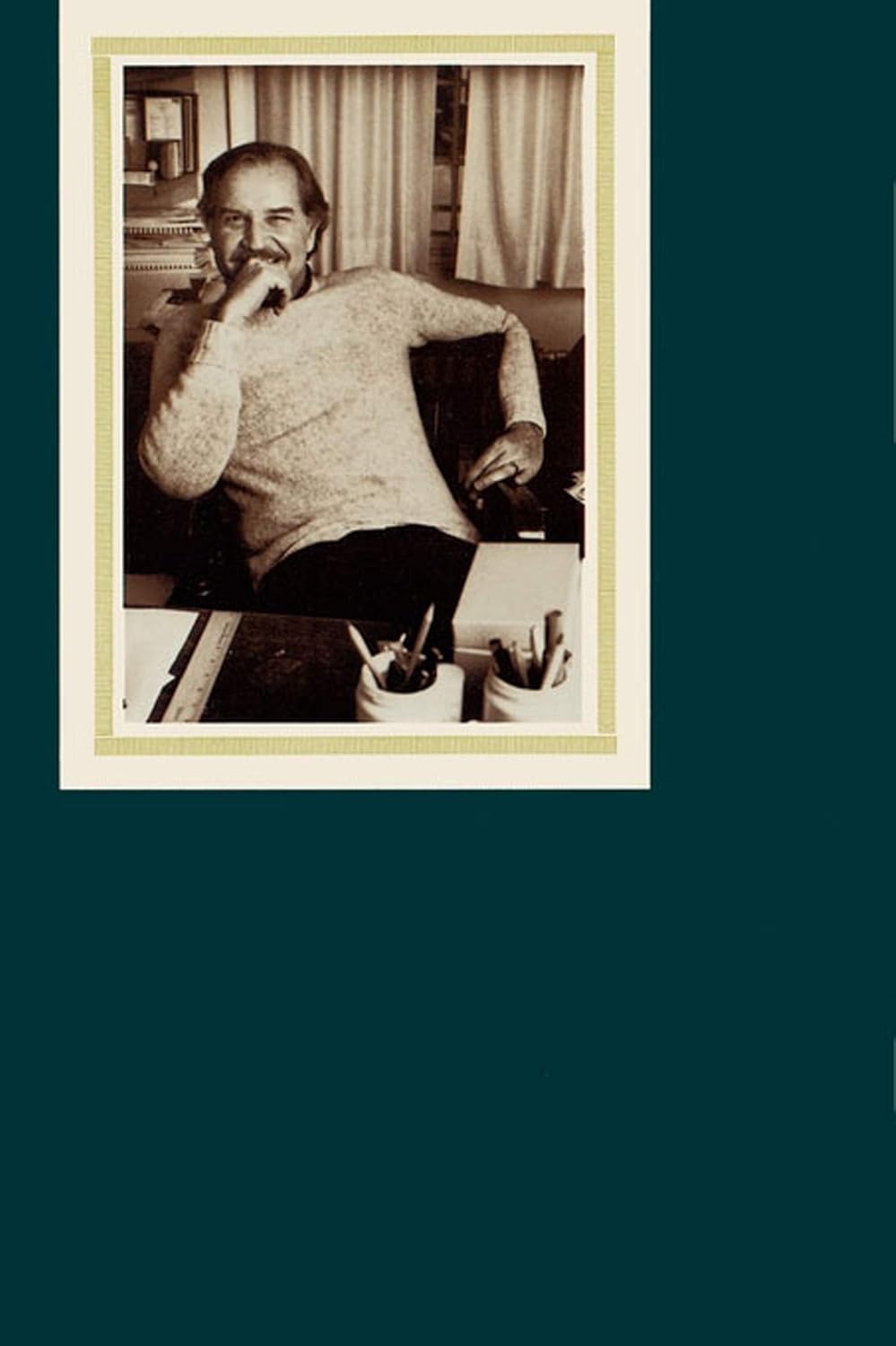
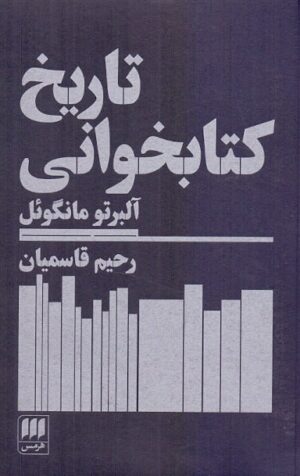
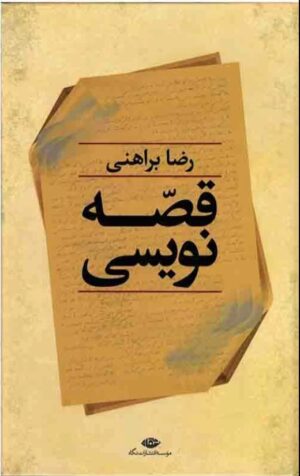
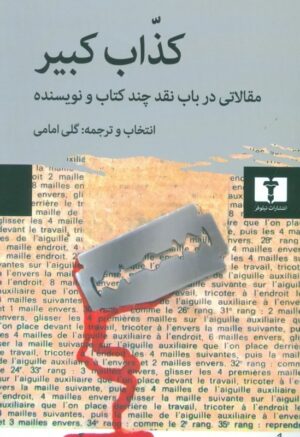

Reviews
There are no reviews yet.